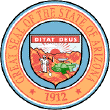Data for this Contest was Contributed by on 2015-05-26
| |
Initiative: Proposition 200: Arizona Governor to Negotiate Tribal Casino Compacts | Popular Vote |
 | No |
995,686 |
85.19% |
 | Yes |
173,126 |
14.81% |
 |
Map Key
| Turnout
 |  |
|
|
| Election Notes:
- Proposition 200 directs the Governor to enter into tribal gaming compacts allowing Indian tribes to operate slot machines and card and table games on tribal land. Tribes would contribute 3% of "annual net income" (defined as the annual total amount of money collected from Class III gaming, less any annual amounts paid out as prizes or paid for prizes awarded and annual labor and other operating expenses and annual interest expenses, depreciation and amortization) to the state to fund university, community college and tribal college scholarships, programs benefiting senior citizens, tribal education purposes and tribal elderly health care services. These distributions are outside the regular legislative process.
Arizona has entered into gaming compacts with 17 of the state's 21 Indian tribes. These compacts permit the tribes to operate specific gaming activities, including slot machines, that are, according to a federal court decision on appeal, illegal off of Indian reservations. These compacts begin to expire in the summer of 2003.
Proposition 200 directs the Governor to enter into a new gaming compact with each Indian tribe that requests it. All compacts must have the following provisions:
Term - 20 years. May be extended for an unlimited number of additional 20-year terms at the request of the tribe.
Facilities - Each tribe may operate 3 gaming facilities. The tribe and the Governor may agree to authorize additional facilities.
Games - Tribes may offer all forms of gambling legal under the Indian Gaming Regulatory Act including slot machines, card and table games including blackjack, poker, roulette, craps and baccarat, wagering on horse and dog races, lottery games, bingo and keno. Each tribe may operate 1000 slot machines or the number of machines that the tribe currently operates (whichever is greater) and may operate 20 gaming tables at each facility. Tribes may offer keno games at no more than 2 facilities unless the Governor and tribe agree on a greater number. The number of slot machines allowed increases each year based on changes in the state's population.
Transfer provisions - Tribes may transfer a portion or all of their slot machine allotments to other tribes.
Revenue - Each tribe must contribute 3% of the tribe's net income from gaming to the Arizona College Scholarship and Elderly Care Fund. Monies are distributed to universities, community colleges and tribal colleges for scholarships, to programs throughout the state that benefit senior citizens and to Indian tribes to be used for educational purposes and for elderly health care services. In addition, each tribe must pay an annual fee of $500 per slot machine to the state to reimburse the state for administrative costs incurred in relation to Indian gaming.
Disclosure - Each tribe's contribution to the Arizona College Scholarship and Elderly Care Fund is confidential, but the Arizona Department of Gaming may make public the aggregate contributions from all tribes. The Director of the Arizona Department of Gaming also must annually disclose the amount of money collected from the tribes as administrative costs.
Regulation - Gaming facility operators must keep surveillance logs that are open to inspection by the Arizona Department of Gaming, but no other records are subject to Department of Gaming inspection, including financial and accounting records. Tribes must investigate reported compact or tribal gaming ordinance violations and require gaming facility operators to correct violations. Tribes must notify the Arizona Department of Gaming within 48 hours when a violation is reported. Tribes must license gaming employees who are not enrolled tribal members. Tribes must also license each manufacturer and supplier of gaming devices and each person providing gaming goods and services in excess of $50,000 in any single month. The state must certify nonenrolled tribal members who are involved in gaming or financial activities, manufacturers and suppliers of gaming devices and persons providing gaming goods and services in excess of $50,000 in any single month. The tribal gaming office is authorized to conduct investigations of compact violations. The Department of Gaming has access to tribal gaming office reports but is not authorized to conduct independent investigations.
Results of Statewide Expansion of Gambling - If state law changes to allow anyone other than Indian tribes to offer slot machines or card and table games for profit or if the state imposes any additional assessments related to gaming on Indian tribes, the tribes no longer have to make payments for regulatory costs or to the Arizona College Scholarship and Elderly Care Fund and the limitations on slot machines and card and table games become null and void.
| Demographic Data
| 2010 Population: | 6,392,017 | Enum. | 2010 Population Density: | 21.7 | persons/km2 | | 2002 Population: | 5,396,255 | Est. | 2002 Population Density: | 18.3 | persons/km2 | | 2000 Population: | 5,130,632 | Enum. | 2000 Population Density: | 17.4 | persons/km2 | | Land Area (2000): | 294,312 | km2 | Annual Pop Growth Rate: | 2.2 | % |
| Election Data and Statistics:
| Election Tools
- Atlas Forum Image Code for Maps: County, Pop
Data Sources:
- Source for Popular Vote data: Arizona Secretary of State. State of Arizona Official Canvass 2002 General Election - November 5, 2002, Arizona Secretary of State (http://apps.azsos.gov/election/2002/General/Canvass2002GE.pdf) (accessed 26 May 2015)
- Source for Population data: U.S. Census Bureau.
| Results for and Individual County:
|
|
| |
|